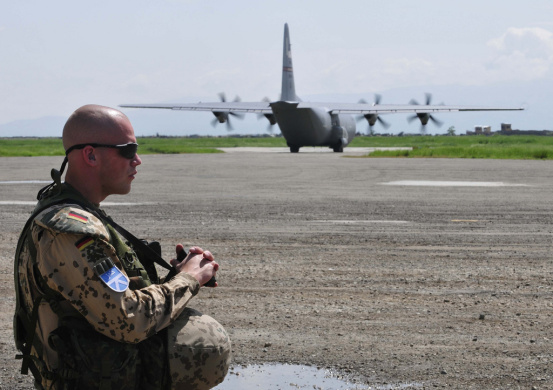 [W]hat can we learn from the Afghanistan effort? . . .
[W]hat can we learn from the Afghanistan effort? . . .
* Every nation remains sovereign. Countries do not surrender control of their contingents when they hand them over to NATO. Commanders in every such unit have the ability to say no to NATO commands. Sometimes, NATO commanders know what the limits are because the restrictions (caveats) are known ahead of time (NATO keeps a Excel spreadsheet to keep track), but sometimes not so much.
* Force Generation is begging. Force generation refers to getting countries to commit troops to the fight. No NATO country is required to provide troops, so NATO officials have to beg, cajole, persuade and then beg some more. Which means that every NATO operation is short of personnel and equipment. In 2001-2002, I had a fellowship that put me on the US Joint Staff’s Bosnia desk, and the list of NATO requirements for that mission was still incomplete, six years after the mission commenced. . . .
NATO has much added value even as it is hardly perfect. Not only does it add a patina of legitimacy to any intervention, but the years of practicing interoperability mean that there is less friction on the ground, in the air, and on the seas. As far as I can tell, no planes collided while refueling during the extended Libyan campaign. The initial effort to rely on national coordination made the various actors realize that NATO facilities were necessary to coordinate the fleets of aircraft. More than this, the decades of exercising and of operating in places like Bosnia, Kosovo and now Afghanistan means that when forces are deployed, the relationships built through prior experience can help to finesse the difficulties of implementing the contradictory orders coming down range from the national capitals.
I have been saying this quite often, but what Churchill said about democracies — that they are the worst form of government save all the others — applies similarly to NATO, which is the worst form of multilateral military cooperation except for all the others. It is likely that NATO offices will develop and share the lessons learned from the recent efforts. It is much less likely that the civilians back home will do the same. So, we academics must do so.
Image: "NATO has much added value even as it is hardly perfect" (photo: USN Petty Officer Daniel Stevenson/ISAF)
